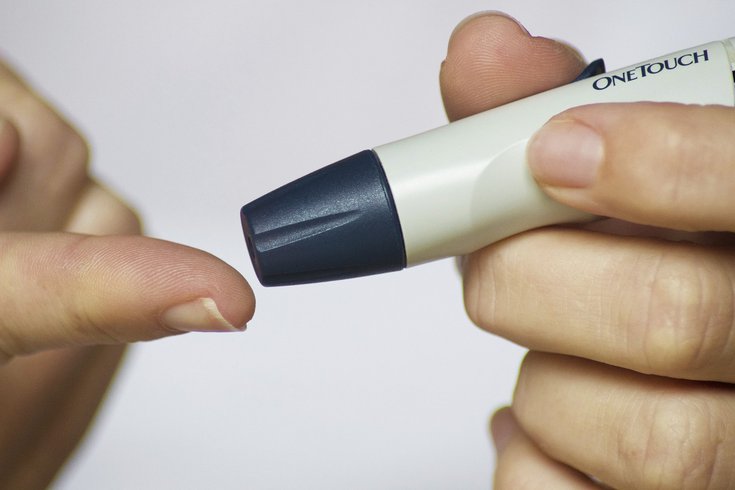
April 19, 2023
 Tesa Robbins/Pixabay
Tesa Robbins/Pixabay
People infected with COVID-19 are more likely to be diagnosed with type 2 diabetes within a year, a new study shows. The risk is twice as high for people who are hospitalized with the coronavirus.
Early in the COVID-19 pandemic, it became clear that people with diabetes had a higher risk of severe illness. Scientists later realized that people who got COVID-19 were more likely to develop type 2 diabetes.
The reasons behind this bidirectional relationship between the two illnesses is not completely understood. Scientists say there is still not enough data to prove a causal relationship, but a new study adds to what they know.
Researchers found that people infected with COVID-19 were more likely to be diagnosed with type 2 diabetes within a year than people who hadn't had it.
Men were 22% more likely than women to develop diabetes after a COVID-19 diagnosis, and people who were hospitalized with COVID-19 had more than double the risk compared to those who were never infected. For people who spent time in intensive care, the risk more than tripled.
"This is definitely a concern in terms of long-term outcomes," Dr. Naveed Z. Janjua, a professor at the University of British Columbia, told The New York Times.
"With a respiratory infection, you usually think, 'Seven or eight days and I'm done with it, that's it.' Here we're seeing lingering effects that are lifelong."
The study compared data from more than 125,000 people in British Columbia who tested positive for COVID-19 in 2020 and 2021 to 500,000 people who had never been infected. Most participants had not been fully vaccinated.
Previous studies have found similar findings, including the higher risk among men and people who develop severe COVID-19. A Rush University study found that people who survived COVID-19 have a 40% higher risk for developing diabetes.
None of the studies, however, have been able to prove that COVID-19 directly causes diabetes, but scientists have suggested various theories on the link. It may be that people already have diabetes but only are diagnosed after receiving care for their COVID-19 infections. Or, perhaps the coronavirus accelerates the progression of diabetes in some way.
Because inflammation is a key clinical feature of both COVID-19 and diabetes, scientists say it is possible that COVID-19 may worsen the inflammation enough to increase metabolic stress and insulin resistance, expediting the progression from prediabetes to diabetes. The beta cells in the pancreas responsible for insulin production are particularly vulnerable to an attack by the coronavirus because of their ACE2 receptors, research has shown.
Another possibility is that severe COVID-19 infections trigger the body's immune system to start attacking itself, as happens with autoimmune diseases like type 1 diabetes. Type 2 diabetes isn't classified as an autoimmune disease, but some studies have suggested its impact on immune cells is similar to type 1 diabetes.
Some scientists also say steroids prescribed to COVID-19 patients may lead to diabetes. Steroids are known to raise blood glucose in some patients. For some, this is a temporary spike, but the glucose levels of others remains high even after their steroid treatments have ended.
Other viruses, like hepatitis C, also are thought to increase the risk of diabetes. More research is needed to determine if there are biological causes for the increased risk of diabetes among COVID-19 survivors, experts say.
Inflammation also seems to be one of main contributors to the higher risk of severe COVID-19 among people who have diabetes.
"People with type 2 diabetes typically have chronic, low-level inflammation that is difficult to detect in clinical practice," said Dr. Rasa Kazlauskaite, an endocrinologist at Rush University Medical Center. "When they become infected with (the coronavirus), this low-level inflammation can become hyperinflammation that affects their lungs, heart and other parts of the body."
This hyperinflammation can lead to a severe infection and the development of long COVID. People with diabetes are more likely to also have chronic kidney disease and obesity, which can increase the risk of COVID-19 complications, including hospitalization and death. They also are known to have a higher risk of infection in general.
One recent study found that type 1 and type 2 diabetes were linked to an increased risk of COVID-19. Diabetic patients on insulin had the greatest risk of infection. The researchers found that diabetes was associated with worse COVID-19 outcomes, too.
Research also has shown that well-controlled blood glucose levels reduce the risk of COVID-19 complications.